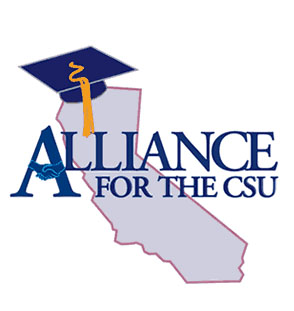CFA talks to classes

CFA talks to classes
September 27, 2008
The California Faculty Association is continuing to work on protecting the California State University system from budget cuts by bringing the issue directly to the classrooms.
Sacramento State’s chapter of the union sent e-mails to professors asking for 10 to 15 minutes of class time for student interns to inform their peers about how the budget cuts are affecting them and what students can do about it.
Sac State Chapter Vice President Kevin Wehr said the key areas of the budget issue that interns are presenting to students include: cuts to class sections, services and programs, the budget impact on class size, rising tuition fees and what students can do to change these conditions.
Last semester, when the fight against the budget cuts began, faculty, students, staff and administration united to save the CSU. But students are feeling the effects of the cuts this semester with shrinking class availability, growing class sizes, and hundreds of cuts to student jobs.
The union wants to ensure that students are more aware of the political context and their own political decision making processes. The goal of these classroom visits is for students to be more informed.
“I know for myself, this is my fifth year, and it was just recently last year that I became aware of tuition rising. For me, financial aid covers my tuition, but I have friends that don’t have financial aid and I notice they’re getting second jobs to work to pay off tuition and I have friends who have left Sac State because they just can’t afford this semester. Just knowing that motivates me,” said Ana Rosales, senior ethnic studies major and an intern for the union. “I have this information: Why not provide it to somebody else?”
Rosales said the CSU system is about $213 million underfunded and for the first time, 10,000 qualified high school seniors were denied access to the universities because of it.
Humanities and religious studies major Shukri Farah is also an intern for the union. She says that students can help in many ways. They are asked if they would like to fill out Alliance for the CSU cards at the end of class visits, which allow the union to contact students for events they can participate in.
Rosales said that last semester, 50,000 Alliance cards were filled out.
“Because of that, they were able to restore 97 million dollars to the CSU,” she said. “So we really emphasize to students that that’s a number we can use to present when we lobby to the legislature and say we have 2,000 students at Sac State who are against budget cuts. That really makes an impact on them.”
Some professors and students think that this is a poor use of class time.
“I do not think it’s right that they’re using class time to push that agenda. It’s a public university and that’s essentially using state resources to campaign. Furthermore, I think its problematic using class time because, given their role, they hold a special position with students,” said Evan Oneto, graduate student in government.
Wehr believes this is a routine part of the classroom experience at Sac State.
“Student announcements in the beginning of class are a very normal thing on the university campus. I have students coming into my class asking to make announcements for volunteer work over spring break and all sorts of things,” Wehr said.
Ramzi Mahmood, department chair of civil engineering, said he thinks that it is important for his students to be informed about the budget issues.
“In civil engineering, we are witnessing growth in the student population and have been very busy to keep with the demand for our classes,” Mahmood said. “Of course the budget is of concern to us. Part of my job as a department chair is to educate our students about the budget so when they become tax payers, they make better informed decisions.”
Wehr said that bringing students into the discussion is a way for them to be an active part of improving their education.
“In a way, my working conditions are student learning conditions, but I would never presume to know everything about the students’ conditions so students talking to each other is the best way to get the issues out in the open,” Wehr said. Oneto strongly believes that although it is very effective, it is essentially forcing students to listen and is an unethical way to approach the matter.
“I have to go to class if I want to get a good grade and I’m getting a political agenda shoved down my throat. Why don’t you make it optional for students to attend and listen? I think that would’ve been a little more democratic in my opinion,” he said.
Farah, however, feels that it is not only crucial to the future of Sac State, but also to the entire community that students become more aware of the issues and try and do something about it.
Tammy Nazanda can be reached at [email protected]




























































































































